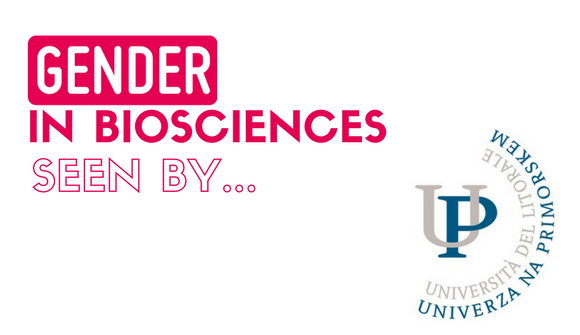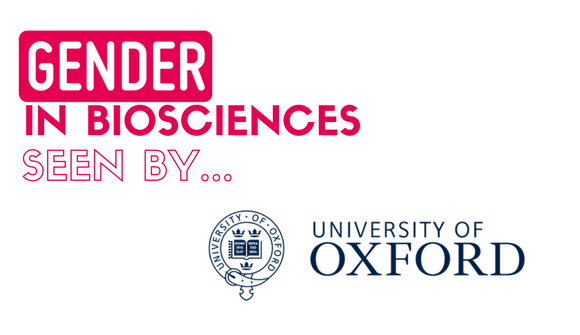Dr. Elena Buzan – is Head of department for Biodiversity and coordinator of study programme Biodiversity and Nature Conservation at Faculty of Mathematics, Natural Sciences and Information Technologie at University of Primorska. She is also responsible for the societal engagement of UP, for the technology transfer and regulation of policy regarding intellectual property, for promoting gender equality, and for the importance of Open access and ethic knowledge in the bioresearch. 1. How do you understand “Gender” in biosciences research? I think gender issue is one of the crucial point to solve in Biosciences. Our role as researchers is to limit gender biased messaging. Women should not feel discouraged from pursuing a career in the Biosciences simply because they don’t fit a pre-determined model. A better integration of women after they finished their PhD can only improve science, as with more diversity comes more creative ideas and effective solutions. We need to stop enforcing stereotypical roles and give better support to women with families (especially small children) to continue their scientific carrier. 2. What are the current standards and actions to achieve better Gender equality in Primorska University and in Slovenia in general? Gender equality in Slovenia is slightly above the EU average, according to the EU Gender Equality Index. In spite of progress over time, there are still challenges ahead. Indicators measuring labour activity showed better results for men than for women. Women are poorly represented in the decision-making positions in employee and employer organizations. Slovenia has a fairly generous framework governing women’s sexual …
Advancing gender equality through the Athena SWAN Charter for Women in Science
Article written by Pavel Ovseiko, Alison Chappell, Laurel Edmunds and Sue Ziebland – Oxford University Health Policy Research and Systems;15(1):12. doi: 10.1186/s12961-017-0177-9. Background All UK universities have been encouraged to take Gender Equality very seriously and instigate many different approaches to improve circumstances for women in science. It is promoted and assessed by a high profile organisation – Athena SWAN which is part of the Equity Challenge Unit (http://www.ecu.ac.uk/equality-charters/athena-swan/). In 2011, the UK Chief Medical Officer was so dismayed at the lack of women in academic medicine, especially in leadership positions, that she sent a letter to all UK medical schools stating that their funding from the National Institute for Health Research (for their associated Biomedical Research Centres, BRCs, and funding generally) could be at risk if they had not achieved Silver award status. Not surprisingly medical schools and all scientific research establishments across the UK did a lot more to address Gender Equity, and still do. Despite the wide-spread implementation of the Athena SWAN Charter, there has been very little qualitative evaluation of its impact. Oxford continues to be very successful with regards to Athena SWAN and funding of the NIHR Oxford Biomedical Research Centre (BRC). There is still work to be done with respect to Gender Equity here, but we have already achieved a lot; for example 16 departments of the Medical Sciences Division (MSD) also integral to the NIHR Oxford BRC, have Silver awards. All this experience of Athena SWAN in turn provided a context for us …
Gender in Biosciences, seen by Oxford University
Dr. Laurel Edmunds – is a Senior Research Fellow working in collaboration with the NIHR Oxford BRC and relevant researchers across the University of Oxford. She is currently leading on a series of systematic reviews evaluating women in academic medicine and research efficacy in the NIHR Oxford BRC. 1. How do you understand Gender in biosciences research? Gender is of growing importance in bioscience research for two main reasons. First, women should not be disadvantaged or treated differently in the workplace just because they are women. Second, as more and more women are going into scientific careers, they are bringing new perspectives and alternative approaches. We cannot afford to lose these resources from the biosciences. 2. What are the current standards and actions to achieve better Gender in your University and in your country? Since 2008 we have had the Athena SWAN Charter for improving gender equality in sciences in the UK. Higher education institutions sign up to the Charter and then apply for an award (either Bronze, Silver, Gold) and complete applications with supporting evidence, and submit these to the Athena SWAN organisation. Bronze requires an assessment of gender equality, a 4-year action plan and an organisational structure that can deliver the plan; Silver is awarded when a department has delivered and shown an impact from these actions; Gold these are maintained and the department supports others. Few science departments hold a gold award as they are difficult to get and keep. There is now a similar Charter …






